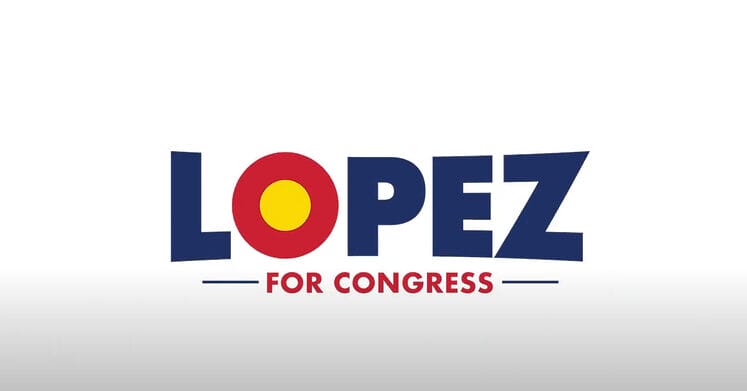Politicians love to take money from citizens. When government takes money – by force – it is called “taxation”, though in Colorado, thanks to the Taxpayer’s Bill of Rights (TABOR) the government is required to ask your permission first. For this reason – politicians don’t like asking permission – Colorado politicians of both parties invent new “fees”, “premiums” and other inventive ways to take your money.
Politicians also love so-called “sin taxes”, which are taxes levied on things people consume for pleasure – tobacco, liquor, beer and wine, and yes, marijuana. These taxes are intended to punish people for their choices and to discourage consumption of these things. Of course, they are also designed to raise revenue, and often they are supposed to fund things like education (“It’s for the children!”).
Their latest money grab involves sales of retail marijuana in Colorado. To recap a bit of the history of legal weed in Colorado: in 2012 the voters approved Amendment 64, which legalized personal use and possession of marijuana. The commercial sale of marijuana commenced on January 1, 2014.
The language of Amendment 64 calls for an excise tax to be levied on the wholesale sales of marijuana, and the first $40 million of revenue raised via that tax is to go to the public school capital construction assistance fund. The ballot language sets the excise tax at 15% and it continues to be 15%.
Proposition AA, approved by the voters in 2013 established a 10% sales tax in addition to the already existing 2.9% statewide sales tax, for a total tax rate of 12.9%. Now, according to leg.colorado.gov, the retail sales tax on marijuana is 15%.
According to Forbes, since legalization, the state has collected over $1.6 billion in marijuana taxes and revenues. Despite the initial selling point that this money is supposed to go to education, it really doesn’t. Ten percent goes to local governments, 72% goes to the Marijuana Tax Cash Fund, 16% goes to the General Fund and the remaining 13% goes to the State Public School Fund. (The observant reader will have noted that these numbers add to 111%. Don’t blame me – I’m just reporting what the state website says. The saying “Close enough for government work” comes to mind.) The money allocated to the Marijuana Tax Cash Fund is spent on health care, health education, substance abuse prevention and treatment as well as law enforcement. The excise taxes are indeed credited to the school building fund.
Now, a group in Colorado is promoting a ballot initiative known as Initiative 25 or the Learning Enrichment and Academic Progress Program (or “LEAP”). This misguided program would increase the state sales tax on retail marijuana an additional 3% for 2022, 4% for year 2023 and 5% for 2024. After that, LEAP taxes could add another 10% tax for a total of 15% LEAP taxes on retail marijuana. The 5% tax is expected to generate another $138 million a year in tax revenue. It is supposed to then offer tutoring and other after school programs outside of regular school hours, primarily targeted to children of lower income families.
Initiative 25 would create a new Colorado Learning Authority (or “Board”), which is to be a political subdivision, not an agency and “is not subject to administrative direction by any department, commission, board, bureau, or agency of the state”. In other words, an unaccountable arm of the state government would have control of these tax revenues.
The Board will have the ability to distribute financial aid to eligible youth or children. It will have wide powers including the ability to borrow money and issue bonds.
The initial nine-member Board would be appointed by the governor. The ballot initiative language calls for certain types of people with certain skills and certain criteria.
The initiative says that board members will basically choose their replacements. Here’s the initiative language:
THE TERM OF ANY MEMBER APPOINTED PRIOR TO JANUARY 1, 2025 EXPIRES ON DECEMBER 31, 2024. THE GOVERNOR SHALL MAKE NEW APPOINTMENTS TO THE BOARD FOR TERMS BEGINNING ON OR AFTER JANUARY 1, 2025 BY SELECTING NEW BOARD MEMBERS FROM A LIST OF RECOMMENDED CANDIDATES GENERATED BY THE INITIAL BOARD THROUGH A PROCESS OPEN TO APPLICATIONS FROM THE PUBLIC. THE GOVERNOR SHALL APPOINT ALL SUBSEQUENT NEW BOARD MEMBERS FROM A LIST OF RECOMMENDED CANDIDATES GENERATED BY THE THEN-EXISTING BOARD THROUGH A PROCESS OPEN TO APPLICATIONS FROM THE PUBLIC. EACH LIST MUST PROVIDE A MINIMUM OF THREE RECOMMENDED CANDIDATES FOR EACH POSITION TO BE APPOINTED, OR SUCH LESSER NUMBER AS THERE ARE APPLICATIONS. AFTER JANUARY 1, 2025, THE BOARD SHALL CONSIST OF ONE RESIDENT OF EACH CONGRESSIONAL DISTRICT OF THE STATE AND ONE OR TWO ATLARGE MEMBERS, DEPENDING ON THE NUMBER OF CONGRESSIONAL DISTRICTS IN THE STATE AT THE TIME OF APPOINTMENT TO ENSURE AN ODD NUMBER OF BOARD MEMBERS. AFTER JANUARY 1, 2025, MEMBERS OF THE BOARD SHALL BE AS FOLLOWS…
This board would be accountable to nobody – not the governor, not the legislature, not parents and certainly not the taxpayers or voters.
Let’s review the proper role of government, for which taxes are levied and paid. The proper role of government is to protect life, liberty and property. It is not to create inventive new ways of taking money from citizens by force to fund after school programs and redistribute income.
This proposed ballot measure is designed to punish people who consume marijuana and create a new state agency that would have wide powers and an insatiable demand for even more taxpayer dollars every year as time goes on.
Now we come to the sensitive matter of who’s sponsoring this initiative and who has lent their name in endorsements.
Without calling anyone out by name (though the reader can see the endorsements at the website leap4co.com), several prominent Republicans are among the endorsers, including some who are graduates of the Leadership Program of the Rockies. My words to them are as follows:
Friends: Check your premises. This program is not a legitimate function of government. It raises a narrow-based tax to fund programs and redistribution of taxpayer dollars that is completely inappropriate. I respectfully ask you to consider withdrawing your support for this measure.
Follow The Money
As with other aspects of the progressive agenda that have been introduced in Colorado over the past several years, it’s always illuminating to see who is contributing money to the issue committees that are formed to support or oppose a measure.
In this case, the issue committee is called “Learning Opportunities for Colorado’s Kids” (It’s always “for the kids!”). This committee has raised $948,270 from exactly two donors, one of whom only contributed $20.
The almost million-dollar donation came from something called the Gary Community Investment Company. A look at their website reveals a private foundation committed to “reshape the arc of opportunity for Colorado kids and families”. Of course, to do this, they want to use the coercive power of government to increase and collect taxes instead of working through voluntary philanthropies and organizations, raising money from private citizens who wish to contribute to their work.
A look at the staff of Gary Community Ventures (the parent of the Investment Company) reveals that former state senator Mike Johnston (D) is the president and CEO of Gary. For those who don’t remember, Johnston (D) was the driver behind Amendment 73, a 2018 ballot initiative that would have raised income taxes by $1.6 billion dollars and introduced a “progressive” (tiered) tax structure to Colorado. (It, too, was “for the kids”). It failed handily at the polls, as tax increases of this nature usually do.
Finally, this government money grab is just part of an ongoing leftist agenda to reshape Colorado’s education system. As my friend Patti Kurgan points out in her excellent op-ed Leap from Dot to Dot and Where Do You Land?, this initiative has its roots in the Democrat playbook The Blueprint, ties to a non-profit called ReSCHOOL and allies with Republican power brokers who will be well compensated for their work in promoting LEAP, no matter what the outcome is.
Don’t be fooled by the “it’s for the kids” propaganda. Don’t believe them when they try to bamboozle you with their good intentions. This initiative is nothing more than a naked power/money grab that no person who calls themself a conservative should be associated with.
I encourage everyone to read the articles about LEAP on Kim Monson’s website, read the proposal, and decline to sign if asked to put it on the ballot. It’s just another bad idea brought to you by Colorado Democrats (and some Republicans).
By Richard D. Turnquist
July 20, 2021









Responses